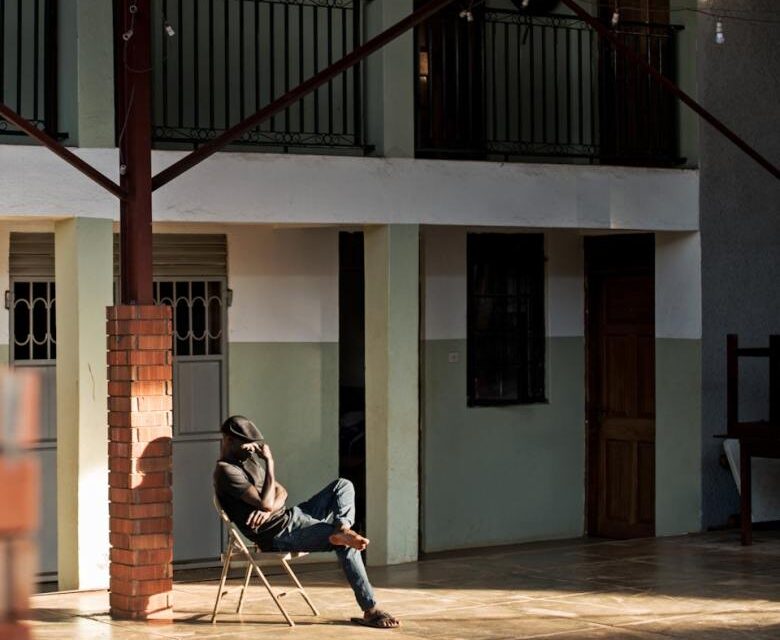By Gene Lambey
Special to the AFRO
National Minority Mental Health Awareness Month will be observed throughout the month of July in efforts to increase awareness of mental and emotional challenges faced by Black and Brown people across the country. Advocates nationwide are using the month to encourage self-care amid the daily struggles of everyday life that can impact one’s health, both mentally and physically.
In today’s culture, especially after the COVID-19 pandemic, focus on mental health has risen in people of color. Centers for Disease Control and Prevention (CDC)’s defines mental health as feelings that“includes our emotional, psychological and social well-being…it affects how we think, feel, and act.” Keeping one’s mental health in check will keep their mind and body sharp.
Dr. Regina James, chief of the division of diversity and health equity, deputy medical director for the American Psychiatric Association (APA) in Washington D.C., spoke with the AFRO on the disparities around mental health.
“There are a number of risk factors for having mental health issues, but it doesn’t necessarily have any risk factors that you would have a mental health crisis,” she said. “There’s the biology and then there is the environmental…some of the environmental pieces that play a role is your early childhood, things that you’ve been exposed to as a kid…any trauma or any attachment issues, but also having some underlying mental health issues like depression or anxiety.”
According to a statement from the CDC, it states that in the United States, “more than 1 out of 5 US adults live with a mental illness.” People can suffer mental illness either in smaller or severe cases such as schizophrenia, bipolar disorder and major depression.
Minority youths’ mental health matters just as much as an adult. Youths can develop mental illnesses at an early age regardless of race. According to a study from the CDC, “over 1 in 5 youth (ages 13-18) either currently or at some point during their life, have had a seriously debilitating mental illness.” The cases in youth for mental illness continue to rise.
Suicides rates have been steadily increases across all groups but it has been an increase in the African-American community and other minority communities. In a study written by Mental Health America (MHA), the suicide rate in the US among the African-American youth, “9.5 percent (439,000) of Black and African American 18-25-year-olds had serious thoughts of suicide in 2018…3.6 percent(166,000) made a plan in 2018…2.4 percent(110,000) made an attempt in 2018.” At this age range, they are learning how to handle changes within their environment, lifestyles, career paths, school and many other factors.
“There are a number of risk factors for having mental health issues, but it doesn’t necessarily have any risk factors that you would have a mental health crisis.”
Dr. Regina James, spoke with the AFRO about the lack of healthcare providers at the onset of the COVID-19 pandemic.
“There were not enough health care providers before COVID-19 and with this rise in mental illness and subsequent disorders, it’s just gotten worse.” She further states the people affected during the COVID-19 pandemic were, “suffering more and therefore have been reaching out to try to understand how to deal with the feelings and the emotions they have been experiencing.”
For youths in the African-American, Latino, Asian and other minority groups, there is a stigma behind mental health where engaging with one’s emotions shows weakness and vulnerability. According to a statement from Mental Health America (MHA), in the African-American population, “research indicates that Black and African-Americans believe that mild depression or anxiety would be considered “crazy.” These youths are discouraged from expressing themselves, keeping their emotions suppressed.
African-American, Latino, Asian and other minority groups may not be as fortunate to receive the proper mental health care and treatment they deserve. The U.S. healthcare system does not treat these individuals equally, especially incarcerated individuals. In a report from the American Psychiatric Association, “Black people with severe mental illness—schizophrenia, bipolar disorders and other psychoses—were more likely to be incarcerated than people from other races.” Targeting African Americans and other minorities with these conditions, sending them to prison does not solve the issue.
Mental health among prisoners in the prison system is something that also needs to be regulated. In a report from the New York system filed by the National Library of Medicine (NLM), under a mental health diagnosis, “8.8 percent of Whites ever went into solitary confinement, compared with 38 percent of Blacks and 25 percent of Hispanics,” continuing with how security and health staff may, “view behavioral problems by White inmates as manifestation of mental illness that merits treatment…opposed to non-Whites whom they view as requiring punishment.” The decades of suppression, discrimination and racism against the African-American community in the U.S. has done no favors for their mental health either.
National Minority Mental Health Awareness Month is dedicated to Bebe Moore Campbell, an author, journalist and teacher. Advocating for mental health, she wanted to break the stigma behind mental health within African-American, Latino, Asian and other minority communities. She published and released several articles for the New York Times, the Washington Post, and has published eight books during her lifetime. Campbell’s stories paint a picture of her own challenges she had to overcome during her lifetime. Her first two books Campbell released were Successful Women, Angry Black Men: Backlash in the Two Career Marriage and Sweet Summer: Growing Up With and Without my Dad.
Campbell’s efforts to support the mental health of African Americans in the U.S. had no bounds. She hosted several events, spoke in several talk shows and interviews such as National Public Radio, and she used her skills in storytelling to connect with everyone on a broad scale. In a statement written by the National Alliance on Mental Health(NAMI), Campbell’s attempts to speak out, “fearlessly challenged the status quo, shedding light on the unique struggles faced by people of color and advocating for their voices to be heard.”
Campbell had her own struggles too, coping with a family member’s mental condition and adjusting to the lifestyles of her divorced parents while growing up. In one of her interviews, according to the APA, she stated, “We won’t have to always hide and run and do our work in the dark. The day is coming when people with brain diseases won’t be written off or warehoused.” She was an icon for mental health within the African-American community and was a voice for the unheard.
On Nov. 26, 2006, Campbell passed away after a long battle with brain cancer at the age of 56. A year before her death, Campbell’s longtime friend, Linda Wharton-Boyd, suggested a month should be dedicated towards awareness for mental health. Boyd, members of Campbell’s family, friends and colleagues searched for ways to make an impact on mental health through Campbell’s journey.
On June 2, 2008, Congress declared July as Bebe Moore Campbell National Minority Mental Health Awareness Month. Boyd’s exposure, former Representative Albert Wynn of Maryland and former Representative Diane Watson of California pushed this agenda into Congress.
This July, in accordance with National Minority Mental Health Awareness Month, everyone should take care of their mental health and share their stories within their communities. The APA shared goals that everyone should partake in this month:
- To improve access to mental health treatment and services.
- To address the need for improved access to care, treatment, and services, for those diagnosed for severe and persistent mental health disorders.
- To enhance public awareness of mental illness and mental illness among minorities.
Other lists of resources and organizations to look into for mental health this month:
- The Surgeon General’s Framework for Workplace Mental Health and Well‑Being
- DC Health Check: DC Child and Adolescent Mental Health Resource
- American Psychiatric Association Practice Guidelines
The post July is National Minority Mental Health Awareness Month appeared first on AFRO American Newspapers .











